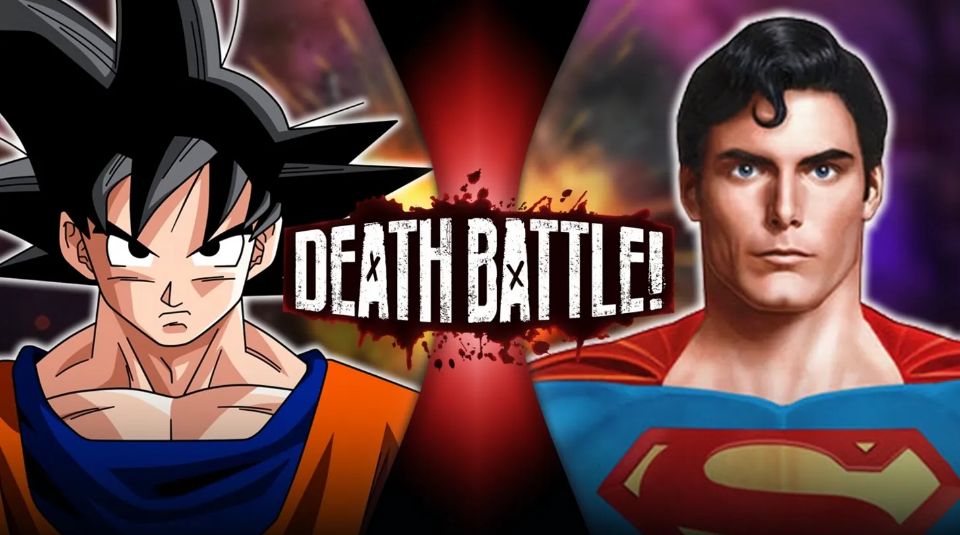The popular YouTube show Death Battle is known for pitting well-known characters from a wide variety of media (i.e. comic books, movies, Anime, video games, etc.) against each other in fantasy fights to the death. As a way of comparing the two combatants’ power levels and abilities and determine the most likely victor, the show does extensive research into the backstories and accomplishments of the characters and compares them to real-world metrics. It is a fascinating show that invites much discussion.
Watching a few episodes of the show will expose you to what are called “feats” or signature achievements. Many of these actions and accomplishments would be considered “overpowered.” For something to be overpowered, it must be an action that goes above and beyond the scope of what a lesser person in that situation is capable of. It could be The Flash moving faster than the speed of light, or The Hulk cracking a planet in half, or Sephiroth destroying a pocket galaxy with one of his spells. The overpowered feats help define what the limits of characters are, and are thrilling to bear witness to. As a writer, you may come across the opportunity to show your characters accomplishing such feats. When you write these moments you want to make sure they are as massive and awe-inspiring to your reader as they are in your mind’s eye. Here are some tips on how to do it.
Keeping true to the core of your characters
The first thing you want to do is get to the core of the characters involved. Explore them and get the main feel of who they are and what they are capable of. Take notes of what their natural talents are, what they are trained in, what skills they have picked up. What makes your character so special, and what can they do so much better than everyone else in the story? In fact, what can they do that no one else in the story can do? These are the physical traits you want to focus on for your feat. In the movie Glass Onion, super sleuth Benoit Blanc solves an elaborately staged whodunnit game in mere moments, long before the actual faux crime is even committed. He leaves everyone speechless showcasing his superior deductive reasoning and powers of observation.
You also have to look at the character’s personality and motivations for doing their overpowered feat. Are they trying to show off? Does the situation REALLY necessitate them going supersaiyan mode? And what is your character’s attitude about it all? All of that is important in engaging your reader to this superhuman moment.
Setting the stage for the overpowered act
Most acts of extraordinary prowess are responses to extraordinary situations. The stakes and the level of adversity at the moment will require your character to go above and beyond their normal capabilities to resolve the issue. This means that when you craft your story, you want to effectively build up the stakes over time, so that when it is time for the overpowered moment, it feels appropriate for the direction the story is going in. For instance, in the DC One Million story, Green Lantern Kyle Rayner had to use his ring and all of his willpower to contain a sentient sun that was going nova. The story had established this sun as a major threat to Earth and also tested the limits of Rayner’s abilities to show he was capable of such a feat. So when that moment came, it did not come as something that was not believable within the context of the narrative.
Don’t overdo it (stretching suspension of disbelief too far)
There is such a thing as overkill. Many jokes are made about early Superman stories where he is doing such ridiculous feats as destroying the Solar System with a sneeze, or eating molten metal, or containing a nuclear blast with his cape, or throwing a neutron star into another galaxy (yes, he did all that stuff). So you don’t want to show your character doing these overpowered feats too often, or having feats that are simply unbelievable, even within the context of your established story world. In Asimov’s Foundation series, Golan Trevize’s ability to make accurate decisions based on limited information and pure intuition was so problematic that another book had to be written to explain why one of his most critical decisions was correct. And Batman surviving a fall to Earth from the moon in a recent storyline even stretched believability.
Grounding the feat in the rules of your created world.
Death Battle’s real world comparisons often work because the metrics of the fictional world have comparable measurables to similar situations in the real world. You want to make sure the overpowered feat happening in your world actually CAN happen in your world. In the Marvel universe, the kinetic absorbing properties of vibranium are well-established long before Black Panther takes his vibranium-laced costume into combat to absorb world-shattering blows from the likes of Namor and the Hulk. So part of setting the stage will be putting details in early laying the groundwork for how your overpowered feat would even be possible.
How does you story react to the feat? What does the feat change?
Every action has an equal and opposite reaction, and nothing happens in a vacuum. Your character’s epic feat should have real and lasting repercussions on your setting, characters and plot. Other characters need to react to what your guy just did, like in an issue of JLA where in spite of expereincing self-doubt of living up to people’s expectation, Superman shows up to fight the rogue seraphim Asphodel, and the Flash -the literal fastest man alive- marvels at how a man struggling with living up to his own hype is now going toe-to-toe with an angel; or how supersleuth Benoit Blanc’s solving the faux mystery in Glass Onion directly causes the billionaire hosting the event to change his plans for his guests. If your feat affects the environment, then those effects must be felt, like when in The Tick cartoon, a half-foiled attempt to carve a face into the moon is visible for the remaining episodes of the series; or when the time mage Teferi phases his entire home country outside of time and space in Magic: the Gathering’s Invasion storyline, that country’s absence is still felt many generations later. And your feat’s effects must also be felt in the plot and story progression, as an act of that magnitude must surely raise the stakes for all parties involved; like in the movie Sherlock Holmes: Game of Shadows, where Holmes and his nemesis Moriarty engage in a high stakes master-level game of chess without even using a board or game pieces, and the result dictating directly what happens next.
Conclusion
Showcasing your characters doing the impossible is a fun, effective way of highlighting your characters’ strengths in a memorable way. If handled correctly, your feat’s will give your readers something to talk about with others that might not know of your story. It might intrigue them enough to give your story a read. Try it.






